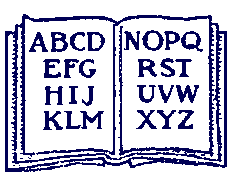
|
I saw the face of a young Afghan girl on television last night. She was getting ready for her first day of school in five years. The translator’s clear voice conveyed the youth’s enthusiasm as she said that she wanted to become a doctor. As we all know, under the Taliban regime, women were forbidden such careers, and no young girl could even imagine such dream. Well, now it is possible. But it is going to be far more difficult than one might imagine. She and every other girl in the country will begin five years behind. Then there is another problem she will face in a few years time. She will likely never be able to study medicine in Afghanistan. Why? Because college level text books are only published in about twelve of the worlds languages. There simply are no medical text books published in Pashtun, Dari, or any of Afghanistan’s other languages. There never will be. She is not alone. All over the world, there are students whose native languages are not research languages. In other words, of all the hundreds of languages, and thousands of dialects in the world there are only about a dozen or so that have text books, and libraries of information on all areas of human knowledge. The rest simply do not. What is the solution? There is only one now, and it is the same one used since antiquity. She will have to first learn a research language so that she can read the latest ever-changing medical information in order to become a doctor. What are the research languages? English, French, Spanish, German, Italian, and some other major European groups including Russian. Japanese and Chinese. I say Chinese with reservation, because it is a case by itself that illustrates this point most glaringly. Between 1965 and 1969 China went through a national trauma called the Great Proletariat Cultural Revolution initiated by Chairman Mao. All the universities were closed and all libraries’ books were burned. By his death in 1976, an entire generation of students had in effect been lost. Not only that, but they woke up to the alarming realization that the new students had nothing to learn from. The fact is that even the few books that did survive the carnage were ten years out of date anyway. And in our modern day, a decade is an eternity. The world had simply moved off and left China behind. What did they do? Face the prospect of going all over the world and procuring up-dated materials in every field of endeavor imaginable, bringing it all back, translating it, and printing it. Then distributing it throughout the vastness of China? In a word, Impossible. They made the only decision possible. Enter a massive, nation-wide language program. Simply put, teach the kids to read, write, and speak the major research languages, and then let them read the material in the original. It worked. Within four or five years there were tens of thousands of brilliant students becoming doctors, biologists, astronomers and engineers. Many did their graduate work in American Universities. This is a success story. Will Afghanistan make this choice? There is no choice. The young girl I saw on the television screen will at some point have to begin learning English. The Territorial Enterprise Educational Foundation is engaged in the creation of English as a Second Language teaching materials, and getting them to the students of Afghanistan, and other places where the need is the greatest. Your tax deductible contribution can help us meet this urgent and very real need. The Territorial Enterprise, founded in 1858 boasts a rich tradition. In the Spirit of Mark Twain, who got his literary start as our editor, we are dedicated to world literacy. In 1998, the Territorial Enterprise Educational Foundation was formed to promote the use of the English language for learning and as an aid in greater human communication and understanding. |
| web site creation CyBrid Citizen Communications©opyright 2002 All Rights Reserved | 
|












